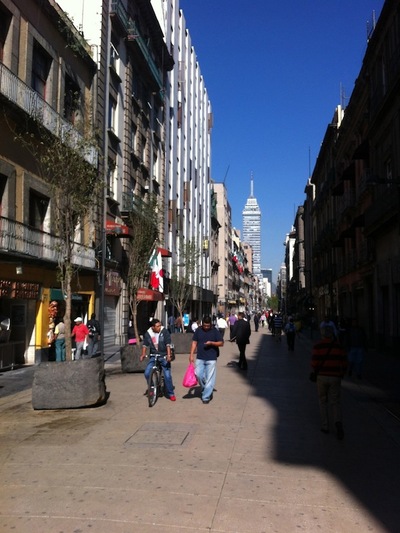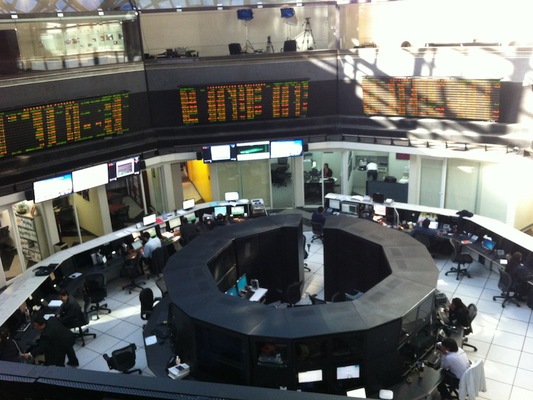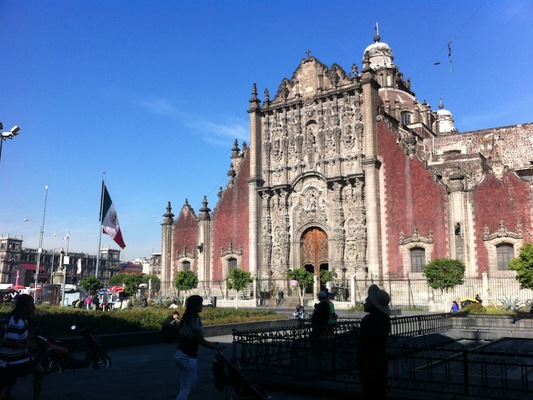- It was election season – and like any other place midstream in the political cycle, everyday life seemed slightly artificial, as if it was distorted by the campaign buzz. Political change lies ahead.
- We were struck by the tangible improvements in the quality of life in the city. Despite being one of the largest metropolitan areas on the planet, Mexico City has made material strides towards becoming more livable and efficient, and it has so far avoided the bulk of drug-related violence.
- Economic activity was evident. There were help wanted signs throughout the city; factories were busy; and cranes dotted the landscape.
We arrived in Mexico City just as a bribery scandal engulfed a well-known foreign retailer.1 The news underscored our suspicion that corruption and graft remain endemic problems in Mexico, as they are in so many other places around the world. However, we were pleasantly surprised by the caliber of most of the meetings we attended during our trip. The management teams were candid, the financial statements were in reasonable order, and the disclosures were sufficiently transparent. There was one notable exception—and in that case, the financial statements revealed a glaring hole, despite management’s best efforts to pretend otherwise.
As we traveled through the city, we were pleased to see how well it all worked. Traffic was subject to occasional snarls, but not as bad as in the past. Pollution was notably abated, and streets, though dusty, were free of rubbish. The city was also visibly busy. “Help wanted” signs were common, suggesting that the recent decline in net migration to the U.S. may be due to opportunity at home as much as anything else.2 Construction projects were underway throughout the city, no doubt because elections will be held soon. Still, the overall quality of life in Mexico City was clearly on the rise. Every Sunday morning, the city’s primary thoroughfare, Paseo de la Reforma, is closed to auto traffic so that families can ride bikes together at a leisurely pace on quiet streets.
Mexico is at an important crossroads. Despite the horrors of the narcotics wars, the underlying economy continues to perform well. Meanwhile, Mexicans are deeply tired of the strife; they are also frustrated by the one-sided nature of the war. Many feel that Mexico’s drug war is out of sync with U.S. policy, and thus they are left to bear the resulting terror and hardship alone. Political change lies ahead, and what that means for the “la guerra contra el narco” is unclear. Even in Mexico City, which has been spared the worst violence, there’s still an undercurrent of danger. However, the policies that have been guiding the economy to its present success are unlikely to change, regardless of which party wins. We will certainly return.
Mexico City







- The views and information discussed in this commentary are as of the date of publication, are subject to change, and may not reflect the writer's current views. The views expressed represent an assessment of market conditions at a specific point in time, are opinions only and should not be relied upon as investment advice regarding a particular investment or markets in general. Such information does not constitute a recommendation to buy or sell specific securities or investment vehicles. It should not be assumed that any investment will be profitable or will equal the performance of the portfolios or any securities or any sectors mentioned herein. The subject matter contained herein has been derived from several sources believed to be reliable and accurate at the time of compilation. Seafarer does not accept any liability for losses either direct or consequential caused by the use of this information.
- Kate Jaquet is a Registered Representative of ALPS Distributors, Inc.
- Seafarer had no economic interest in the securities mentioned in this commentary (Walmart and Walmart de Mexico) as of the date of its publication. View the Seafarer Overseas Growth and Income Fund’s Top 10 Holdings. Holdings are subject to change.
- For more on migration trends between Mexico and the U.S., see this research report from the Pew Research Center.
![[Chrome]](/_layout/images/ua/chrome.png)
![[Firefox]](/_layout/images/ua/firefox.png)
![[Opera]](/_layout/images/ua/opera.png)
![[Microsoft Edge]](/_layout/images/ua/edge.png)